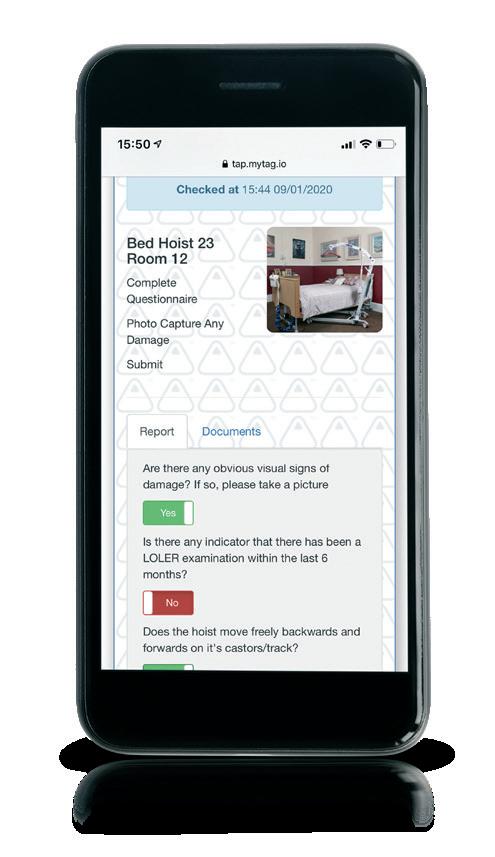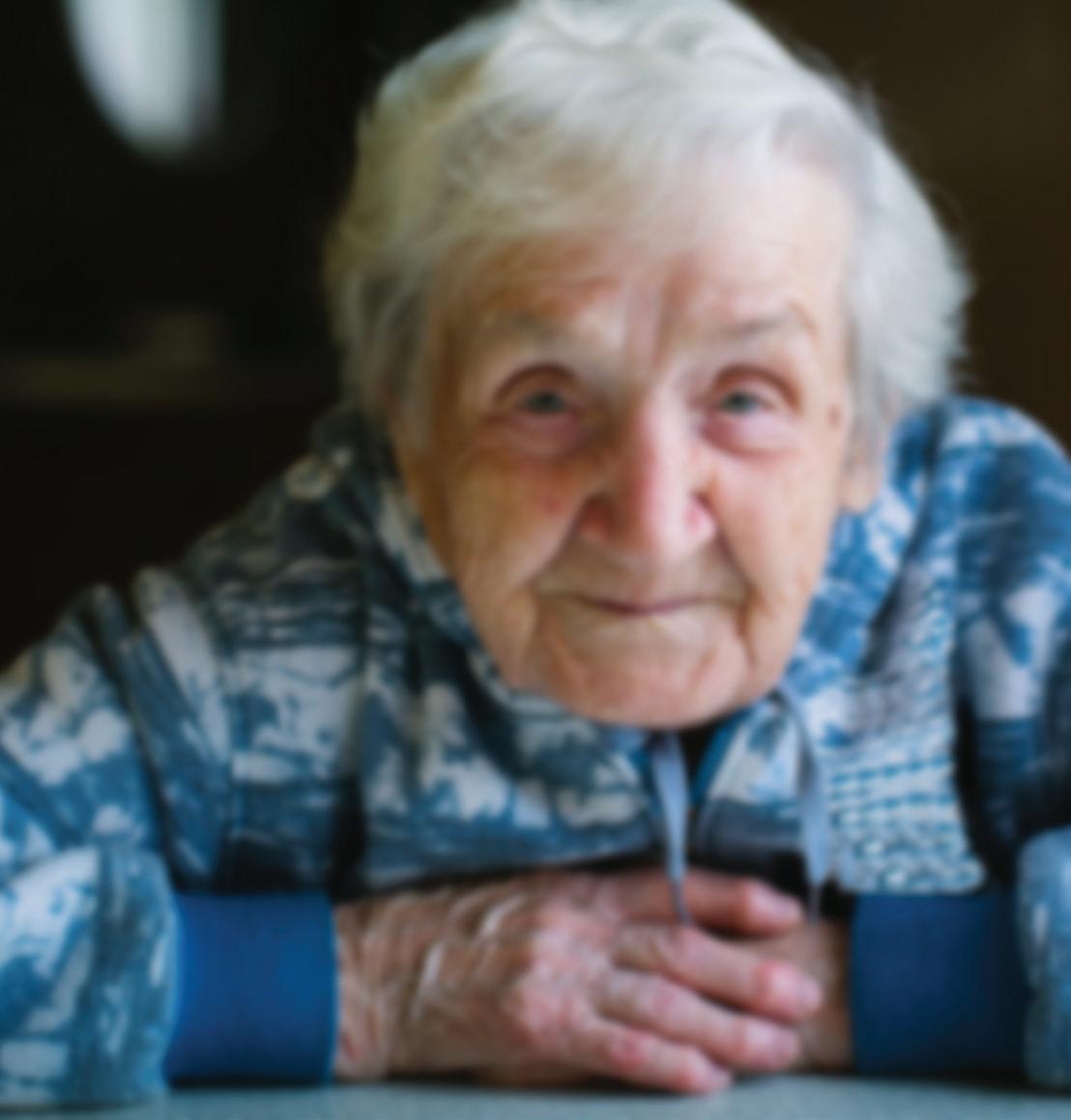
5 minute read
An untapped resource: How to use volunteers
With staff absence an issue and only so many people to fill the roles, should the sector look to volunteers? What can they help with and what checks need to be done? Isabel Clift from Florence goes into detail here.
As a care provider, you’re likely to be looking for extra help during this busy and challenging time. Volunteers are perfectly placed to support you – and there’s a huge public appetite for giving back. This was recently seen in the call for volunteers to support the NHS during COVID-19, which received over 750,000 sign-ups within three days of launch.
Social care organisations >



can tap into this national mood by deploying their own volunteer workforce. Here, we’ll provide steps for how to find and manage volunteers, as well as tips for keeping volunteers and those you support safe. >
KEEPING PEOPLE PROTECTED
Firstly, it’s worth mentioning, members of the public are allowed to volunteer within England’s lockdown rules. However, there are safety concessions to be made.
The Government’s overarching rule is to stay at home where possible – so opportunities that enable people to help from their homes are preferable. If your organisation can accommodate at-home volunteers – say, those who can offer regular companionship phone calls or emails to the people you support – that’s ideal.
If you need volunteers to help with tasks outside of their homes, these jobs must be undertaken by those who can do them within their daily single outdoor activity, and shouldn’t cause long stretches of time to be spent outside. This volunteering can only be undertaken by those who feel well, who aren’t in high-risk groups and who haven’t been told to self-isolate or shield.
When working at your organisation, for example within a care home, volunteers should follow social distancing rules according to Government guidance. If your service provides care for at-risk groups, such as elderly or immunodeficient people, volunteers should be kept completely separate from them – though roles such as fetching shopping are permitted.
FINDING VOLUNTEERS
Start with your network. Send a call-out message to friends, family members and colleagues to ask for their help and connections in finding people. Add a page to your website asking for volunteers, and email your database (if you have either of these).
Neighbourhood and mutual aid groups have surged in popularity in the wake of coronavirus. Tap into these networks to find potential willing candidates. Search your postcode on www.volunteercoronavirus. com to find local groups, or join your organisation’s neighbourhood group on www. nextdoor.co.uk.
Create a system to manage those you hear back from. This could be as simple as a spreadsheet with columns for names, contact details, and links to other relevant information you may ask for – such as a folder with photos of identification or an up-to-date DBS certificate (within a timeframe compliant with your organisation’s guidelines).
Stick to GDPR rules when collecting volunteer data. This means setting appropriate access levels for where volunteer data is stored, for example, making sure any spreadsheets and personal documents aren’t publicly accessible.
If you’d rather avoid finding and setting up suitable volunteers yourself, several organisations can connect you with volunteers for free. Look at joining the National Care Force or Do-it, or speak with local charities and volunteer centres who could help source people for you. The National Council for Voluntary Organisations (NCVO) has a handy volunteer centre finder for this.
MANAGING VOLUNTEERS
Think carefully about what volunteers can do to help your regular workforce and the people you support, and set expectations around what you need.
Remember, volunteer help is freely given, and can be withdrawn any time. Volunteers shouldn’t have the same obligations as permanent staff, and must work with clear instructions so they’re best equipped to support you. Volunteer tasks could include: • Shopping and errands for those in self-isolation. • Driving people to and from health appointments. • Organising food and other essential deliveries. • Providing childcare for workplace staff. • Befriending people who use your services over phone or email.
Know the identification and reference or background checks you require. This will depend on the nature of the work you need help with. If it involves childcare or work with vulnerable adults, your volunteer will need an upto-date DBS certificate. Note, the Government is fast-tracking DBS checks for certain people and applications are now free of charge.
You should ask volunteers to bring their identification (for example, their passport, drivers’ licence or identity card) on your first meeting, and their DBS certificate if necessary.
RECOGNISE SCAMS
Sadly, coronavirus has led to a rise in scams and false offers of help. Make sure your volunteers are aware of common scams. These might include: • Fundraising appeals for donations to develop a vaccine for the virus (this can occur by phone, online or door-todoor) – no such fundraising is legitimate. • Emails or social media adverts offering fake products such as coronavirus cures, or antibacterial gels. • Cold calls or emails offering to help with shopping for those in self isolation – it will follow that card details or a cash payment will be asked for upfront.
Volunteers should know to report anything suspicious to the volunteer lead at your organisation. Concerns around scams can also be passed to Action Fraud on 0300 123 2040.
Volunteers are a fantastic addition to your roster during this time. They can be a real lifeline if you’re facing staff gaps, or a resource strain due to extra requirements from those you care for. When deployed correctly – with clear instruction, and within the government’s lockdown criteria – this hidden workforce will help keep social care going strong. CMM
Useful resources
• The National Care Force – free platform to connect social care services with vetted volunteers. • Do-It – free platform to connect all organisations with volunteers (including social care). • NCVO Volunteer Guidelines – a detailed overview of how to run volunteer work for your organisation, including information on recognising and reporting scams. • National Trading
Standards – provides detailed information for safeguarding against scams, including a free e-learning course. • NCVO: Volunteers During
Lockdown – advice for government rules to follow when working with volunteers during lockdown. • GDPR: Volunteer
Considerations – written for mutual aid groups, but a super-clear guide for anyone on how to store and protect volunteer data.





